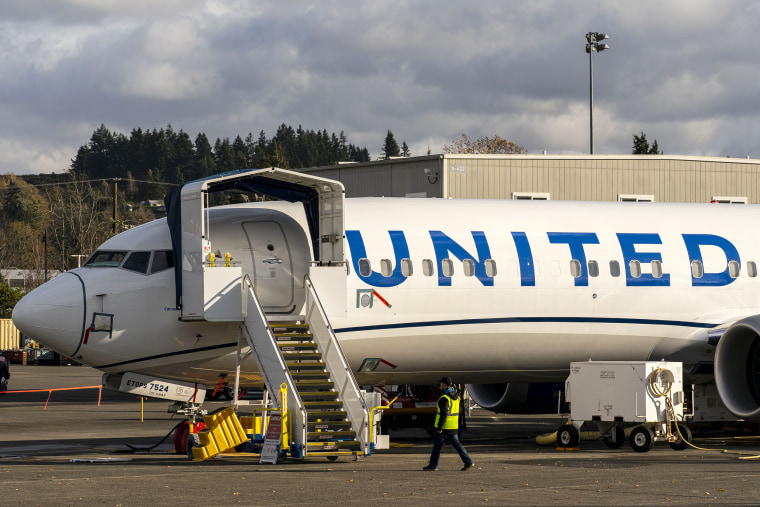Boeing's 737 Max has been cleared for takeoff by the Federal Aviation Administration 20 months after it was grounded following two crashes that killed everybody on board— but some passengers say they're still reluctant to board the controversial aircraft.
That's forcing airlines to reassure passengers that the jet is safe — while also giving them free ticket changes if they're not comfortable flying on the Max.
"If our pilots, along with the APA, FAA and our safety teams are confident the aircraft is safe, we are confident in its return to service," David Seymour, chief operating officer of American Airlines, wrote in a letter signed by five other top executives for the company. The Allied Pilots Association, or APA, is the union representing American Airlines' pilots.
But, Seymour added, "if a customer doesn't want to fly on the 737 Max, they won't have to."
Jenn Cammorato, 40, a revenue manager for a rental company from Los Angeles, wrote in a message: "I'd change my ticket or make the reservation over the phone to make sure I'm not flying on a Max. In fact, I don't want to fly any Boeing planes any more, and now I spend time researching routes on travel enthusiast websites and forums to find airlines that fly Airbus or other planes on flights I need to take."
Other passengers have a different view.
"Flying is a commodity. I'll fly on whatever the cheapest ticket gets me," wrote Lou Nunzio, 39, a mechanical engineer from Safety Harbor, Florida. "Flying is still significantly safer than driving, even on that particular plane."
Airlines said customers can look at their itineraries to see which kind of aircraft they are scheduled to fly on.
"For now, most airlines that have the plane will show it as the Boeing 737 Max 8 or Max 9 at booking," Brian Kelly, founder and CEO of The Points Guy, a travel advice site, said in an email. "There's been talk that some airlines could rebrand the Max as a 737-8 or Boeing 737-9 — which is different from the non-Max Boeing 737-800 or 737-900. That's something to look for."
As it gets closer to their departure dates, passengers can request different flights, and the fare changes or ticket fees will be waived, the airlines said. They can also request refunds for refundable tickets. Nonrefundable tickets can be canceled and turned into credits for future flights.
However, aircraft swaps can occur on the day of travel itself — so there is still a chance that a passenger who has opted not to fly on a Max will find that the jet is the only one available.
For passengers who have concerns about the safety of a jet that has been out of action for months, there are several steps to return a flight to service. The planes will have to be removed from storage, maintenance checks will need to be performed, every plane will have to go through readiness flights, FAA approvals must be obtained, and pilots will have to undergo two additional hours of simulator training.
"Bringing a grounded jet back into service involves a lengthy list of maintenance actions, inspections and operational flight tests, in addition to training pilots on updated software and emergency procedures approved by the FAA during the Max recertification," commercial pilot Marc Himelhoch said.
"It will probably take a couple of months minimum for most airlines to get their pilots trained and accomplish all the logistics, maintenance and operational test flights required to get the planes back into revenue service," he said.
Boeing said Wednesday that it has "worked closely with airlines, providing them with detailed recommendations regarding long-term storage and ensuring their input was part of the effort to safely return the airplanes to service."
But winning back customer trust may prove to be more difficult than completely re-engineering a jet, as Boeing has done.
"The real issue now for airlines is how they introduce it back into their systems in a way that builds confidence of the traveling public," aviation expert Mark Dombroff, a partner at the Fox Rothschild law firm, said in an email.
"The aircraft is one of the most microscopically examined aircraft in the history of aviation," Dombroff said. "This has included focus by the manufacturer, the FAA, as well as non-US aviation authorities and the airline industry."

